“Educators will tell you that a classroom full of empathetic kids simply runs more smoothly than one filled with even the happiest group of self-serving children. Similarly, family life is more harmonious when siblings are able feel for each other and put the needs of others ahead of individual happiness. If a classroom or a family full of caring children makes for a more peaceful and cooperative learning environment, just imagine what we could accomplish in a world populated by such children.” – Jessica Lahey, “Teaching Children Empathy,” The New York Times
Our personal success as individuals and the survival of our society as a whole depend on our ability to understand and connect with others, so empathy is inarguably one of the most important traits to instill in our children. To that end, resources for teaching kids empathy have been cropping up everywhere — in parenting articles, children’s book lists, and school programs like “Character Counts.”
However, Harvard University’s Making Caring Common Project released a discouraging report that demonstrates how these efforts are overshadowed, and may even be erased, by the actual feelings and priorities we unconsciously communicate to children, especially as parents. For those of us who study and observe very young children, this result is no surprise. In the report, The Children We Mean to Raise: The Real Messages Adults Are Sending About Value (which I recommend reading in its entirety), Harvard researchers note:
“At the root of this problem may be a rhetoric/reality gap, a gap between what parents and other adults say are their top priorities and the real messages they convey in their behavior day to day. Most parents and teachers say that developing caring children is a top priority and rank it as more important than children’s achievements (Bowman et al., 2012; Suizzo, 2007).
… About 80% of the youth in our survey report that their parents are more concerned about achievement or happiness than caring for others. A similar percentage of youth perceive teachers as prioritizing students’ achievements over their caring. Youth were also 3 times more likely to agree than disagree with this statement: “My parents are prouder if I get good grades in my classes than if I’m a caring community member in class and school.” Our conversations with and observations of parents also suggest that the power and frequency of parents’ daily messages about achievement and happiness are drowning out their messages about concern for others.”
Our words matter far less to our children than what we actually think and feel. Our children are the most sensitive, receptive and perceptive audience we will ever encounter, and for them, our feelings and attitudes are transparent and contagious. If we’re the slightest bit anxious or uncomfortable, our child has no choice but to feel that anxiety as well. If we’re annoyed, impatient or even a bit rushed, children have a harder time functioning and will tend to put on the brakes. It’s as if our uncomfortable energy sucks all the air out of the room. A fascinating study reported in Scientific American showed how our children “catch” our social biases through the nonverbal messages we might unconsciously send. So we can preach our unbiased approach to children all we want, but what children sense about us “in action” will override all of those lessons.
Highly aware and intuitive, our children don’t miss a trick. We can’t get away with not walking the walk.
So, the only way to teach children to prioritize empathy is to make this choice ourselves where it matters most, which is in our day-to-day interactions with them. This isn’t easy during the tumultuous toddler years or when our child’s behavior is aggressive or defiant or otherwise irritating, but with consistent practice and an understanding of developmental expectations, empathy can become our default perspective and consistent message. Here’s how three parents are finding their groove:
Instead of judging her son’s emotions as trivial overreactions, Lane chose empathy:
Over the weekend, as toddlers are wont to do, my almost 3 year old son had a meltdown – a screaming, crying, inconsolable meltdown over (what seemed to me) a very silly thing. Thankfully, you and the RIE parenting approach have taught me that what may seem trivial to me is probably a big deal for my toddler. Understanding that perspective gives me the strength to stay calm and help him through, when sometimes all I want to do is crumple into a heap on the floor and cry.
A lot of the time he’s trying to communicate through hysterics why he is upset, and I literally can’t understand what he is telling me, so I’m not able to help immediately. I used to be able to hold him in my lap until he got all his feelings out and calmed down enough to discuss. Lately though, he has become more assertive with his independence, so he gets angry if I make the first move toward physical contact. Again, thanks to you and RIE parenting, I recognize this as normal, healthy behavior, don’t take it personally, and I learned quickly to offer support and wait for his direction. I say, “You sound very upset and I want to help, but I can’t understand what you’re telling me right now. Take the time you need to calm down. Is there anything I can do to help you calm down so we can talk?”
After a few weeks of this, he suddenly started asking me for help. I would note that he was upset, and he would say, “I need you to help me calm down.” It floors me every single time that he is able to recognize at such a young age his need and ask for help like that.
This weekend, after enduring a rather terrible meltdown and developing the beginning signs of a migraine (and being distraught about that because I resolved my chronic issues with them well over 5 years ago), he started getting upset again, causing me to burst into tears. To my astonishment, he stopped in his tracks and said to me, “You’re upset. Can I help you calm down?”
Wow. Just, wow.
It’s a moment I’ll cherish the rest of my life.
Instead of becoming increasingly annoyed by her son’s repetitive behavior, Kate chose empathy.
“Wanted to share a success story from our family. I have been learning and trying to practice the RIE parenting approach for about a year now. I have found it so helpful and last night had yet another wonderful moment. My 4 year old son, who has autism, was having difficulty waiting on his cousin to join him for a sleepover. He was tired, was getting very repetitive and agitated. I empathized with him that it can be very difficult to wait patiently. That calmed him a little. As a couple more minutes ticked by, he started repeating over and over that he wanted his cousin to come. I said enthusiastically that I do, too! I started singing a made up song about waiting for his cousin to come. He sang with me and broke down into giggles and hugs. When his cousin finally came, he was calm and happy and able to enjoy. Thank you!!!”
Instead of rushing her child through emotions, Geentanjali chose patience and trust.
I’ve been reading your work for about a year and I do my best to practice the RIE parenting approach. My daughter is 4.5, and I’m currently expecting my second. A few months ago in my first trimester, I tucked my daughter into bed and headed down the stairs. Unfortunately I slipped all the way down a full flight of carpeted stairs, unable to stop, miraculously padding my fall with my elbow and bottom. But I was seriously shaken and started crying. My daughter heard me in her room, charged down the stairs, held me tight and said, “Mama, just breathe and tell me if it hurts anywhere.” She held me tight as I vented and cried, telling me it’s okay, it’ll hurt for a bit, but it’ll get better, I promise. A few minutes later my husband got home, and she calmly narrated what happened.
Much later I sat and marveled at how calm she was and how effortlessly she calmed me down. She even told me to call the doctor! I’m amazed at how a four-year-old handled herself… Her understanding and sheer empathy was unbelievable. Thank you!”
“Personality characteristics such as generosity, empathy, caring and sharing cannot be taught, they can only be modeled.” – Magda Gerber
“In the end only kindness matters.” – Jewel
I share more about raising children with empathy and respect in my books, Elevating Child Care: A Guide to Respectful Parenting and No Bad Kids: Toddler Discipline Without Shame
Thanks to Kate, Geentanjali and Lane for sharing your stories!
(Photo by Martha Chapa on Flickr)

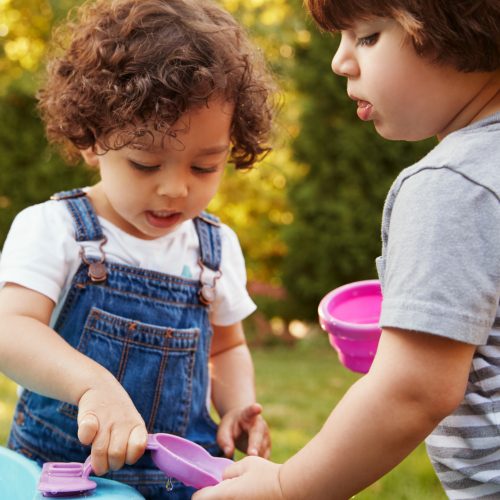
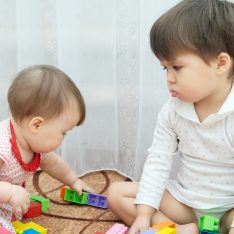

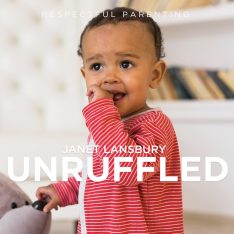

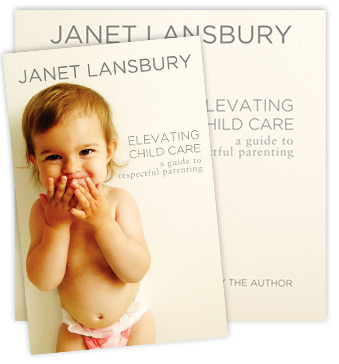

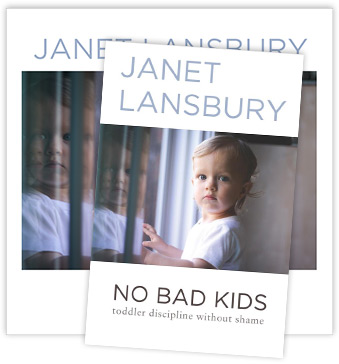
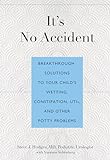



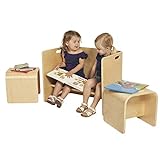

This gave me goosebumps. Thank you for continuing to share all the lovely ways we can and do respect each other for the human beings we are!
Just, “yes” … child taking reslonsibility for her emotions/behavior…parent (other) offering help. True interdependence — neither dependence or codependence. Yea, yes, yes! God forgive me when i forget this amd disrespect the “law” of relationship. Awesome. Also — thanks for noting this nasty current disconnect between what culture praises (respect others) and what we as adult leaders/teachers DO. Lets focus on ourselves first and our authority second. Walk the walk as “they” say — im preachjn’ to myself.
Thanks!
Thanks for sharing this: My daughter is only 3 months old, but I’m trying to get a headstart on gathering ideas before she needs more entertainment… This, in particular, is sobering for me:
“If we’re the slightest bit anxious or uncomfortable, our child has no choice but to feel that anxiety as well. If we’re annoyed, impatient or even a bit rushed, children have a harder time functioning and will tend to put on the brakes.”
I suppose it’s the sort of thing most people can feel… but you’re right, and I need to come up with a strategy for handling this.
I have always felt like I learned empathy through reading — by being forced to view the world through other people’s perspectives. I wrote about it recently and would love some feedback (I’m new): https://mattybannond.wordpress.com/2017/04/02/what-should-kids-read/